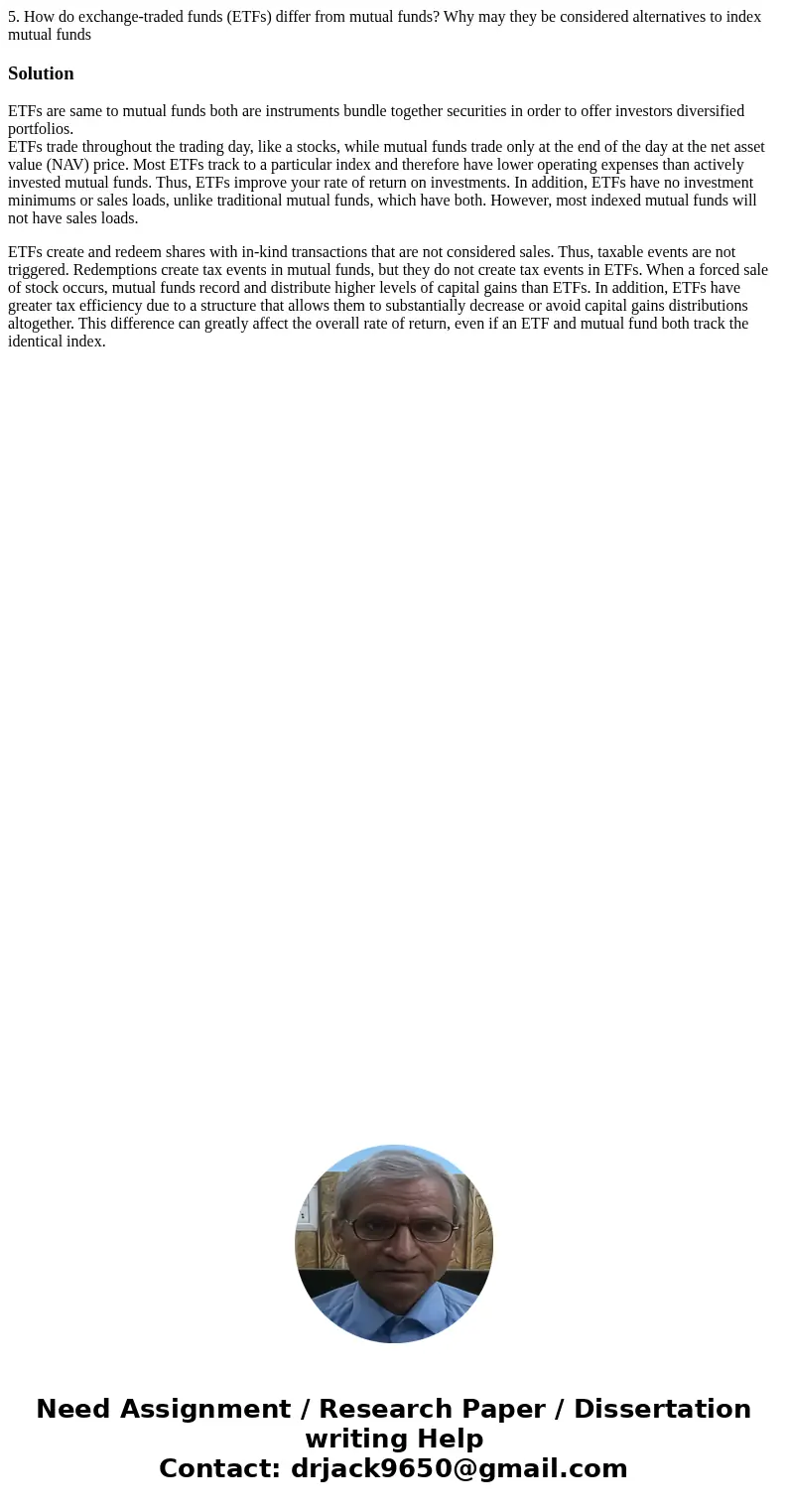5 How do exchangetraded funds ETFs differ from mutual funds
5. How do exchange-traded funds (ETFs) differ from mutual funds? Why may they be considered alternatives to index mutual funds
Solution
ETFs are same to mutual funds both are instruments bundle together securities in order to offer investors diversified portfolios.
ETFs trade throughout the trading day, like a stocks, while mutual funds trade only at the end of the day at the net asset value (NAV) price. Most ETFs track to a particular index and therefore have lower operating expenses than actively invested mutual funds. Thus, ETFs improve your rate of return on investments. In addition, ETFs have no investment minimums or sales loads, unlike traditional mutual funds, which have both. However, most indexed mutual funds will not have sales loads.
ETFs create and redeem shares with in-kind transactions that are not considered sales. Thus, taxable events are not triggered. Redemptions create tax events in mutual funds, but they do not create tax events in ETFs. When a forced sale of stock occurs, mutual funds record and distribute higher levels of capital gains than ETFs. In addition, ETFs have greater tax efficiency due to a structure that allows them to substantially decrease or avoid capital gains distributions altogether. This difference can greatly affect the overall rate of return, even if an ETF and mutual fund both track the identical index.

 Homework Sourse
Homework Sourse